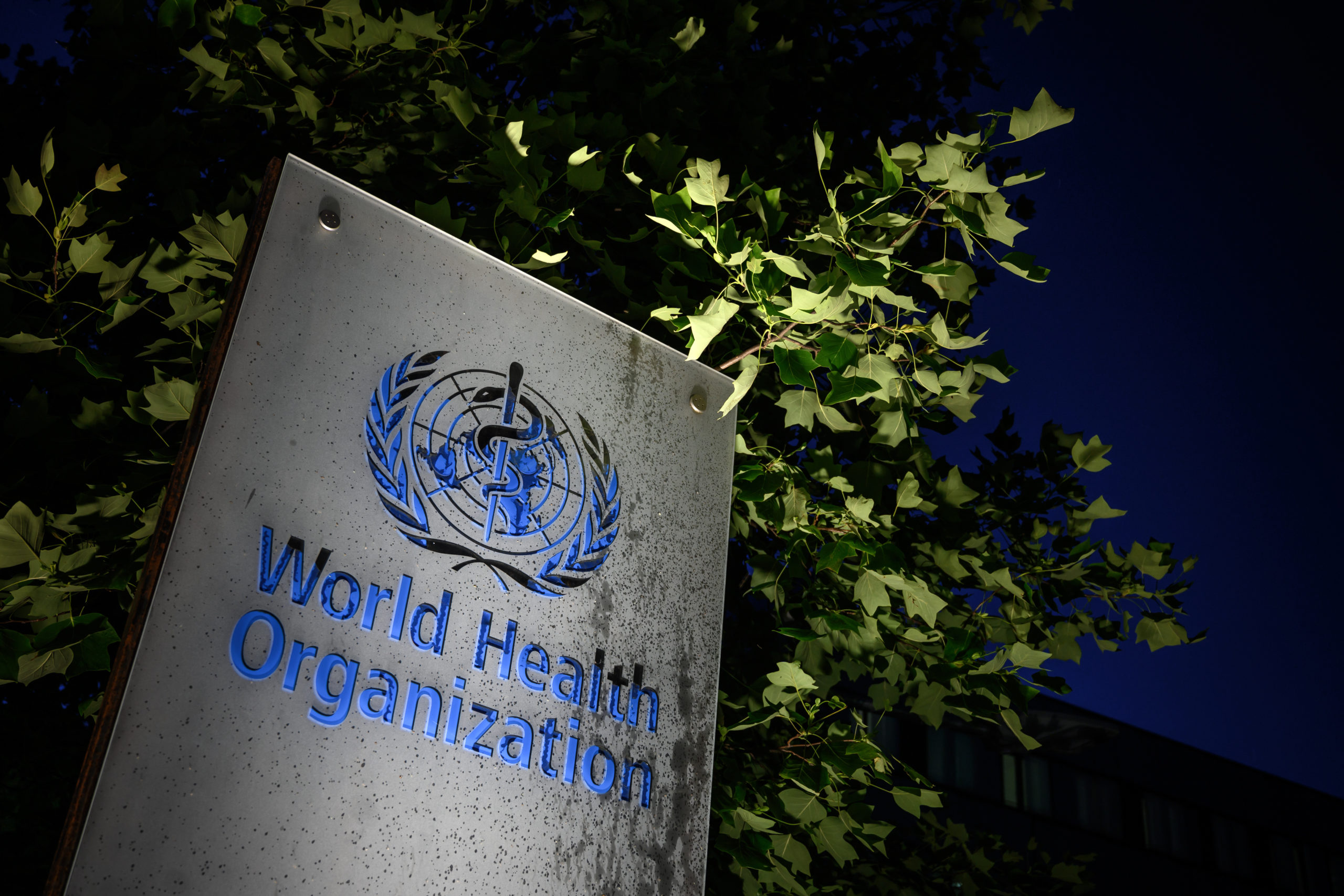
A photo taken in the late hours of May 29, 2020, shows a sign of the World Health Organization (WHO) at their headquarters in Geneva amid the COVID-19 outbreak, caused by the novel coronavirus. – President Donald Trump said May 29, 2020, he was breaking off US ties with the World Health Organization, which he says failed to do enough to combat the initial spread of the novel coronavirus. (Photo by Fabrice COFFRINI / AFP)
WASHINGTON — U.S. President Donald Trump said he is severing ties with the World Health Organization (WHO) over its handling of the coronavirus pandemic, as the death toll from the disease spiked again in the United States and Brazil.
The virus, which has killed more than 364,000 people and devastated the global economy, is progressing at different speeds across the globe, with Europe continuing to open up from lockdown on Saturday after seeing its number of infections steadily fall.
Italy’s iconic Leaning Tower of Pisa reopened, while Parisians flocked to parks open for the first time in months.
But countries in Latin America are bracing for difficult weeks ahead, especially Brazil, where the death toll shot up by 1,124 on Friday and there was a record number of new infections.
The unprecedented challenge of the pandemic has put pressure on the WHO, and Trump’s decision to end hundreds of millions of dollars in funding comes when the UN agency needs it most.
Trump initially suspended funding to the WHO last month, accusing it of not doing enough to curb the early spread of the virus and being too lenient with China, where the virus emerged late last year.
On Friday he made that decision permanent in a major blow for the agency’s finances, as the U.S. is by far its biggest contributor, pumping in $400 million last year.
The president told reporters the U.S. would be redirecting WHO funds “to other worldwide and deserving urgent global public health needs.”
‘Madness and terrifying’
The move sparked a fierce backlash on Saturday, with German Health Minister Jens Spahn saying the “disappointing” decision was a setback for global health.
A spokesman for Chancellor Angela Merkel said she would not attend an in-person summit of G7 leaders that Trump had suggested he would host.
Richard Horton, the editor of The Lancet medical journal, said it was “madness and terrifying both at the same time.”
“The US government has gone rogue at a time of humanitarian emergency,” he tweeted.
Nearly six million people have been confirmed to have contracted COVID-19 across the world, and a vaccine remains elusive.
As the disease spreads across South America, the poor have been hit hard in countries like Brazil, which now has the second-highest number of cases in the world after the United States.
“In 26 years, I’ve never seen so many people living in fear, so many people going hungry,” said Alcione Albanesi, founder of charity Amigos do Bem, which distributes supplies to communities in the impoverished Sertao region of Brazil’s northeast.
“Everything has ground to a stop. But hunger doesn’t stop.”
Chile also logged another record number of deaths on Friday, pushing its total to almost 1,000.
Positive signs
In European countries that seem on the other side of their outbreak peak, there has been pressure to lift crippling lockdowns despite experts warning of a possible second wave of infections.
Tourism-dependent Greece said it will restart its two main airports for arrivals from 29 countries from June 15. But some European nations hard hit by the virus are not on the list, including France, Spain, Britain, and Italy.
In Austria, hotels and cinemas were allowed to take in customers again on Friday under special guidelines, provided masks are worn.
“It is very important that things return to normal because I am a person who lives alone and is very interested in culture,” film buff Rotraud Turanitz said at Vienna’s Admiral Kino cinema.
Hotels and shopping centers in Ukraine’s capital Kiev also reopened on Saturday.
Turkey too has moved ahead with easing its restrictions as mosques opened for the first time in months, drawing hundreds of worshippers in masks for mass prayers in Istanbul.
And Denmark said it would reopen its border to visitors from Germany, Norway, and Iceland from June 15, although Britain and the rest of the EU will have to wait a few more months.
Across the Atlantic, the US capital Washington DC resumed outdoor dining with social distancing precautions in place, while Los Angeles restaurants and hair salons also reopened.
New York Governor Andrew Cuomo said the state was “on track” to begin reopening in the week of June 8, even as the death toll in the US spiked by 1,225 on Friday.
Disney World in Florida said it will be up and running again from July 11.
China even welcomed its first Europeans since suspending visas in late March, with a plane carrying 200 mainly German workers landing near Beijing.
Economies shattered
The economic damage from weeks of lockdowns continues to pile up, with Chile taking out a two-year $24 billion credit line with the IMF.
India’s economy grew at its slowest pace in two decades in the first quarter, and Canada and Brazil also said their GDP figures shrank.
As the lockdowns finally lift, some people are reveling in the return of long-missed creature comforts.
In Japan, traditional bathhouses have begun to open again, much to the delight of businessman You Sasaki, who told AFP he had been counting down the days to his next soak in the warm pools of Yumominosato onsen, just outside Tokyo.
“This feels good. Feels great,” the 50-year-old said as he sat in a tub.
“The last time I came here was the end of March. The onsen is always special. It’s hard to explain in words.”